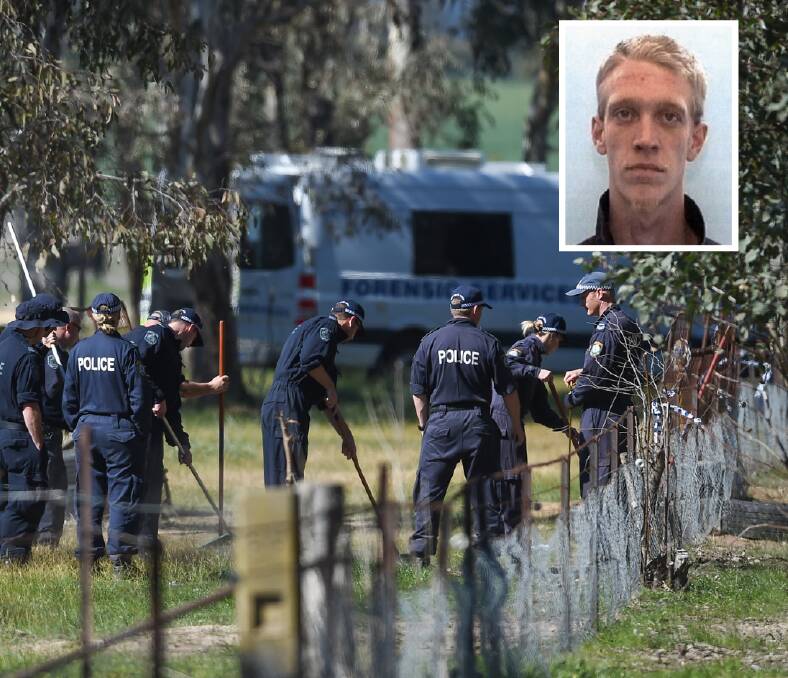
The jury in the Wagga Supreme Court trial of a man accused of murdering William Chaplin more than 10 years ago is expected to retire on Wednesday to consider its verdict.
Subscribe now for unlimited access.
or signup to continue reading
The man, who cannot be named because he was a teenager at the time of the alleged offence, is accused of being part of an extended joint criminal enterprise to kill Mr Chaplin and dispose of his body at Gerogery in 2010. The prosecution alleges the accused helped another man - who also cannot be identified - murder Mr Chaplin, perhaps after Mr Chaplin witnessed a child sex offence.
Mr Chaplin's remains were found in September 2019. The court was told his body was found buried in a shallow grave on vacant land near Gerogery's Main Street and a fire was lit above it.
During two weeks of evidence, jurors were played recordings of police interviews as well as phone intercepts. They also heard from a witness, a woman who also cannot be named, who told the court she saw Mr Chaplin's body and helped stoke the fire to burn his remains.
IN OTHER NEWS:
At the start of the trial, Crown Prosecutor Paul Kerr said it was a "circumstantial case" as there was no direct evidence for who killed Mr Chaplin, or how, or exactly when.
The accused's defence barrister, David Dalton, told jurors there was no independent testimony to suggest his client had taken part and he had concealed the crime "out of fear for his life".
The court also heard the accused told police during an interview he was afraid of the man and was ordered by him to take the blame.
In his closing remarks, Mr Kerr described the accused as a "compulsive and manipulative liar". He said the accused had "told dozens, if not hundreds of lies" and lied as a consciousness of guilt.
The prosecution said the accused was criminally liable for Mr Chaplin's death because he had an agreement with the man to kill him, and said he should be found guilty of murder regardless of whether or not he did anything that contributed directly to the death.
"[The accused] knew that [the man] wanted to get rid of William Chaplin," he said.
"[The man] told [the accused] what he was going to do and he did it.
"We don't know what happened in that round yard, only three people know - one of them isn't speaking, one of them has a real difficulty telling the truth and the other one is dead.
"Lying doesn't make you a murderer, but telling people you are involved in the killing does."
Mr Dalton rejected that claim.
"That comes down to lying about it, saying that you were involved in the killing process means that you must have been covering up because you were conscious of your guilt of murder. In my submission that's not well founded," he said.
Mr Dalton said the evidence was "totally unreliable".
"We know what he said in the telephone intercepts is wrong because the man didn't ... have his throat cut, and that's the evidence, you can't get around that," he said.
"It demonstrates ... what the Crown is attempting to do - to use portions of what was said in those interviews, taken from different places, [and] put them together to come up with a case."
Mr Kerr said if the accused was not criminally liable for murder, he may be guilty of manslaughter. Mr Dalton said his client should be acquitted of all charges.
"I didn't call my client because there isn't a proper basis ... for a finding on these accepted to be unreliable accounts in the telephone intercepts and in the interviews to make any proper findings, let alone findings beyond reasonable doubt that he's guilty of any of these offences by way of joint criminal enterprise," he said.

